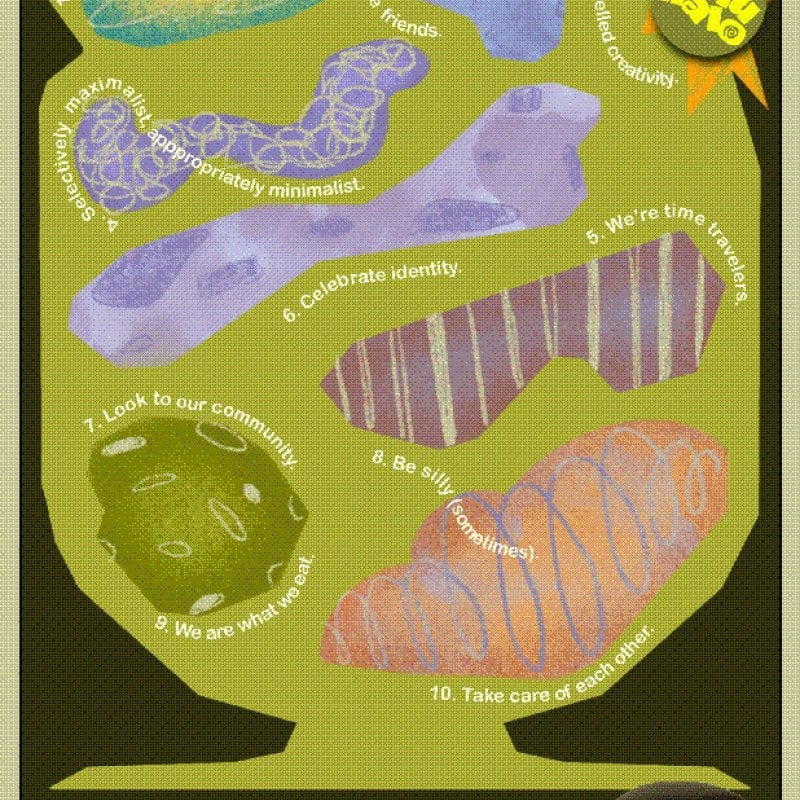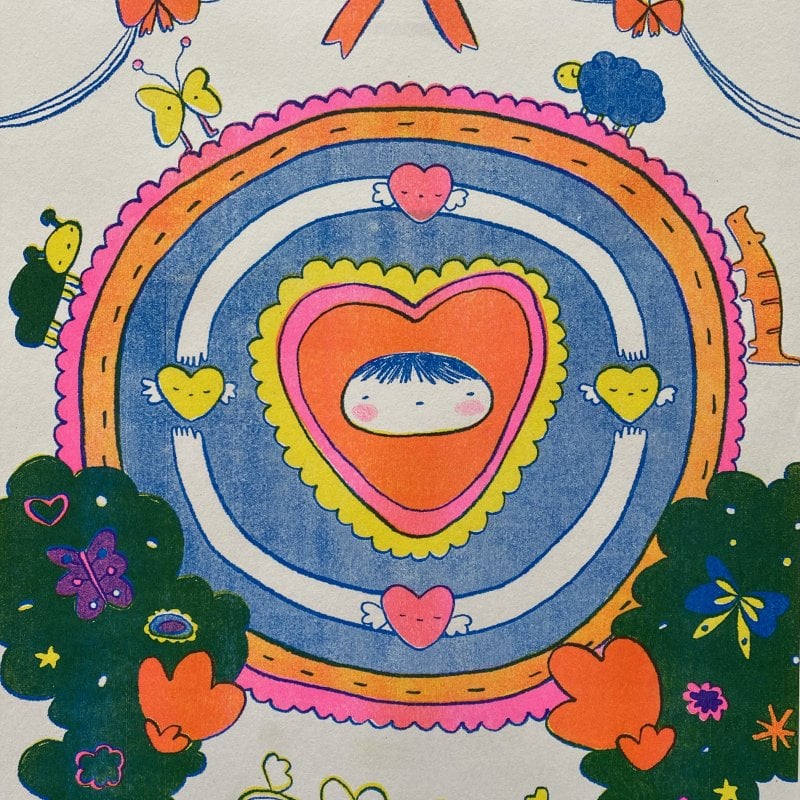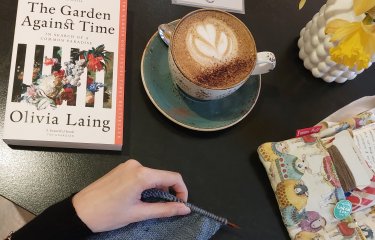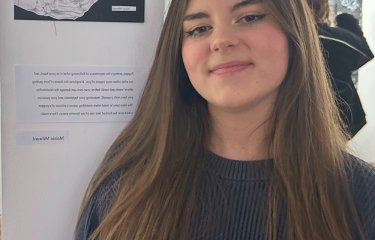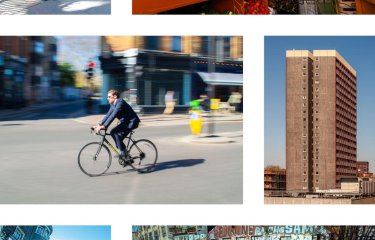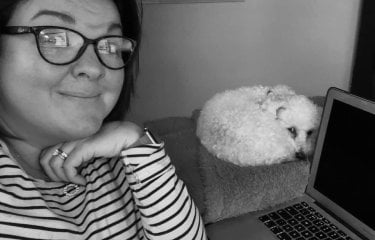Introducing Studio Haluhalo: an inclusive studio from Visual Communication students Pita Santos and JJ Whippey
27 February 2024
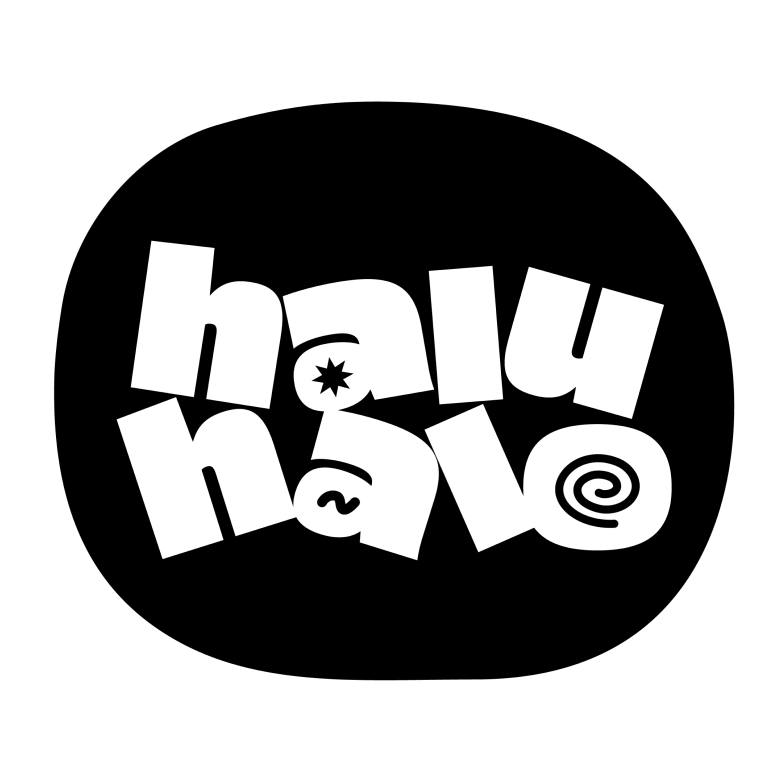
Two students on Falmouth’s online Visual Communication BA course have cofounded a studio in Manchester called Studio Haluhalo. Inspired by their shared Filipino heritage, queer identity and love of the city’s creative arts scene, Pita Santos and JJ Whippey have big ambitions for their new creative venture. We chatted to them about the studio manifesto, their creative beginnings, and how being part of Falmouth’s online community has ignited their friendship and creativity.
Can you tell us a little about each of your creative backgrounds, and what made you choose to join Falmouth’s online Visual Communications community?
JJ: I've always been a lover of the arts and have always made my own work. My family moved around quite a lot when I was younger, and art was one of the only things that felt familiar in every country, and I found that really inspiring. But weirdly enough, I didn't go down the creative route at school or college and went on to study marketing at university, but ended up dropping out because it just wasn't for me. I then found work in the tech industry where I was analysing data, which I do enjoy, because I like working to a process.
However, I finally decided to invest in my passions, and looked for a course that would suit my busy schedule. I found Falmouth’s online Visual Communication course, and it really appealed to me because I love creating art that has a subtle message.
Pita: Growing up, my mom worked long hours at a restaurant, and she always brought me along because there was no one else to take care of me. I was a quiet kid, and all my hobbies were things where I could be by myself, like reading and playing games, and I spent a lot of time drawing. I remained interested in art throughout high school and from there I decided to take it more seriously. I grew up in the UK but moved to the Philippines for a while where the art scene felt very different; I felt like I was at home there and met people who were like me.
After doing a multimedia arts course at college, I moved back to the UK and enrolled on a different visual communication course, but found I wanted a course that was more industry-focused, which is one of the great things about Falmouth’s online course. Also, with it being online, I can balance my studies and creative practice with other things, which is really useful.
What is the most valuable thing you have gained from being on the course so far?
JJ: Before joining the course, I would approach a piece of work at face value, and only consider how it looked, the techniques used and so on. A big thing I have learned is how to research more deeply, and how to use different types of research to inform my work – whether that's primary, secondary, traditional or non-traditional research. It is really helping me to create better outcomes and has led me to realise that I'm really inspired by the past, as well as the future. I am now spending time looking back at archives, as well as different types of art movements, and adding this new research element to my creative process is taking my work from strength to strength.
Pita: I agree with JJ that my ability to research has improved. Before I joined the course, I would make work without real meaning or intention, but now I'm making things that I really care about. Another thing I've realised is that I don't have to stick to one thing; I can translate my style to lots of different mediums and still have a message that ties everything together.
Where did the idea for Studio HaluHalo come from?
JJ: Since joining the course, we have struck up a friendship because we come from similar backgrounds; we're both Filipino, we're both queer and we both live in the north of England. It seemed like the universe was bringing us together – it turns out we also have the same sense of humour, and we even like the same foods!
We were chatting on WhatsApp one evening, discussing our futures after the course, and I said to Pita that I’d love for us to open a studio together one day. We got a rush of excitement talking about it, and we stayed up until about 3am generating ideas, and so we thought: ‘why are we waiting? We should do it now!’
Deciding to start the studio while we’re still studying will give us the opportunity to directly apply what we learn on the course, which is exciting!
Pita: The name ‘HaluHalo’ comes from the Filipino ice shaved dessert called halo-halo, which translates as ‘mix mix’. It's got so many different ingredients – when you see photos of it, it’s crazy – and so we felt it represented our work very well. It also links to our Filipino heritage; the Philippines were colonised a few times in the past, so there is a real mixture of identities there, and that is something which draws us together.
What are you ambitions for Studio Haluhalo over the coming months?
JJ: Deciding to start the studio while we’re still studying will give us the opportunity to directly apply what we learn on the course, which is exciting, as well as to consider the business side to running a studio. We recently finished our studio manifesto, which lays out our beliefs and intentions, and one of the key aims is to always use a combination of experimental analogue and digital techniques in everything we do, which is directly informed by our experiences at Falmouth.
Another key element of our manifesto is around celebrating individuality, as well as looking to our community – whether that's our Filipino community, our queer community or our Mancunian community – for inspiration.
Pita: The creative scene here in Manchester is fantastic and we want to work with collectives, small businesses and individuals – particularly those from underrepresented backgrounds – on creative projects, and we already have our first client: a Filipino Malaysian cafe here in Manchester, where I work part-time, are revamping their menu and doing a lot of rebranding, and we're going to help them out with the design process.
We're also keen to run workshops as part of the studio, and we’re running our first session for our Visual Communication course peers when we all meet in person in Amsterdam this March, which will be exciting. Ultimately, we are open to experimenting and seeing where things take us.

